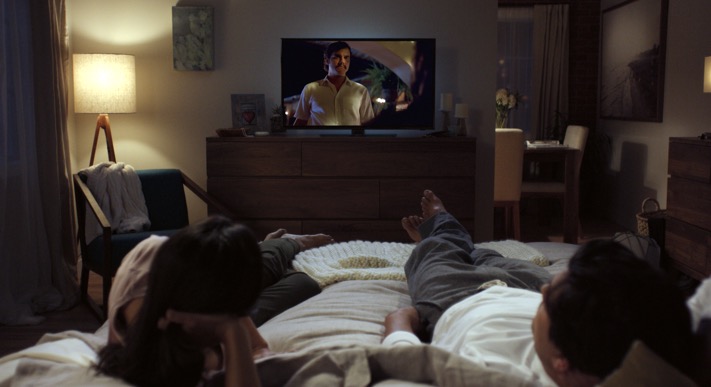26-year-old who binge-watched for hours is India’s first case of ‘Netflix addiction’


According to doctors, what starts as an entertaining activity soon turns into a habit, so much so that addicts begin prioritising television over relationships and work (Representational Image, Courtesy: Revista Feel)
The uninterrupted access to countless hours of television and movie content on video streaming platforms like Netflix, Hotstar and Amazon Prime has paved way for binge-watching, which doctors say can spiral into a medically certifiable addiction.
The evidence comes in the form of a 26-year-old from Bangalore, who could well be the country’s first ever case of ‘Netflix addiction’.
The youth had turned to the online video streaming platform to keep himself occupied during a six-month period of unemployment. He eventually realised that he just couldn’t stop watching.
He is being treated at Bangalore’s National Institute of Mental Health and Neurosciences (NIMHANS), where he has complained of eye strain and fatigue.
“He used to watch (online series) for seven hours, and sometimes it would go up to 10 hours per day. It led to loss of control, withdrawal. When his parents asked him not to watch, he would get angry and irritated,” Manoj Kumar Sharma, who is treating the man, told PTI.
Netflix, which came to India two years ago, said they did not have a comment on the incident.
According to comparison website Finder India, Netflix’s India library, which began with 826 titles, is among the most extensive in the world. It now has 4,706 titles, which includes 3,342 films and 1,364 TV shows.
Mumbai-based psychologist Harish Shetty says addicts of online television can be spotted by their behavioural and viewing patterns.
Much like drugs, addicts of online television feel the need to watch shows every day, gradually withdrawing from their environment. This often results in strained and dysfunctional relationships in both the personal and professional spheres.
“One begins to crave for it (shows), getting angry when he/she is unable to do what he wants. There is very little communication with the people around,” Shetty told the news agency.
What initially starts as an entertaining activity soon turns into a habit, so much so that addicts begin prioritising television over relationships and work.
Research firm Media Partners Asia noted in its July 2018 report that India’s online video market, driven by competition among well-capitalized global and local platforms, was growing rapidly and the trend was expected to continue for the “next three years”.
“India’s 14 percent annual growth in video content investment was a standout in 2017,” the report stated.
With so many options available at the push of a button, Shetty said people often found themselves in front of their screens for long hours and get anchored to it sooner than they realise.
Addicts start watching shows through the night, and anchoring happens, he said, adding that the health impacts were dangerous.
Depression, anxiety, high blood pressure, and psychosomatic illnesses are some major consequences of binge watching. However, if done right, one can enjoy the best of both worlds.
Shetty suggested that monitoring viewing time and hours, increasing communication with friends and family members, and hitting the bed early after dinner can help one stay away from a potential addiction.
With agency inputs













